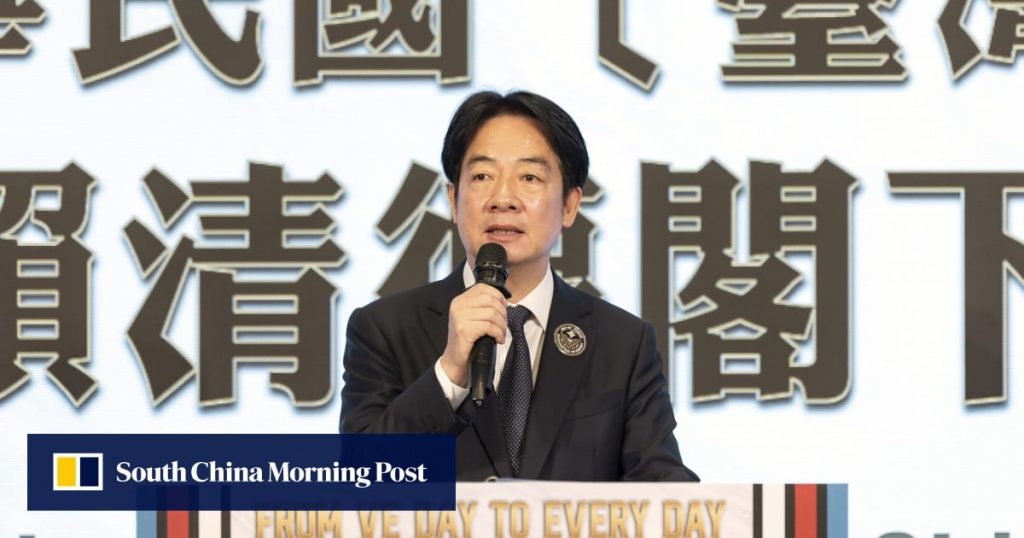Taiwanese leader William Lai Ching-te has marked the 80th anniversary of the end of World War II in Europe, in a controversial move that is being interpreted as a symbolic stand against Beijing’s growing military pressure.
It was the first time that Taipei formally observed the end of the war in Europe and triggered sharp criticism at home, where analysts and opposition lawmakers accused Lai of distorting history.
Lai had sidestepped Japan’s wartime atrocities and minimised the crucial role of the Republic of China (ROC) – and main opposition party the Kuomintang (KMT) – in the Allied victory that ended the second world war, they said.
In a speech on Thursday, Lai described peace as “priceless” and urged democratic countries to stand united against modern authoritarian threats. “World War II was the deadliest war in human history, and the pain it caused still echoes today,” he said.
“The major lesson is clear: authoritarianism and aggression lead only to slaughter, tragedy, and greater inequality.”
Without naming Moscow or Beijing, Lai warned of a “new authoritarian bloc” that he said threatened global stability, citing undersea cable sabotage, election interference, and disinformation campaigns.
“Lovers of freedom around the world must work together now in tight solidarity – before risks turn into crises,” he said.


